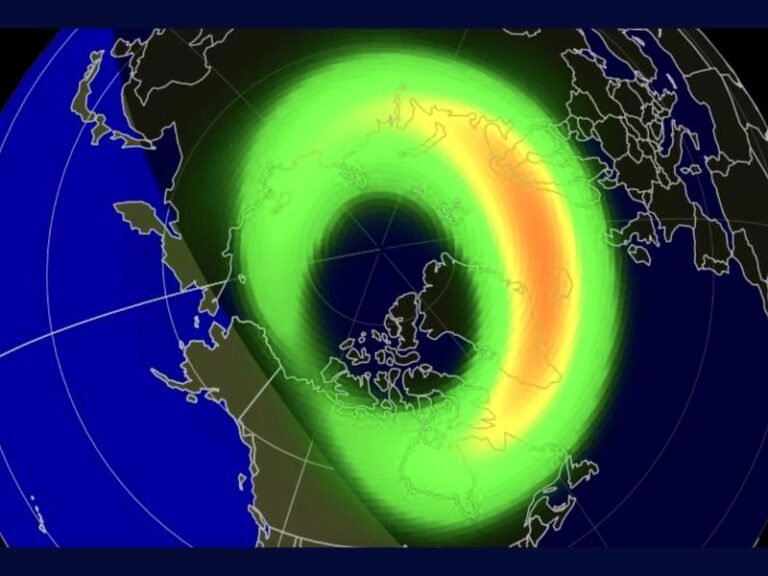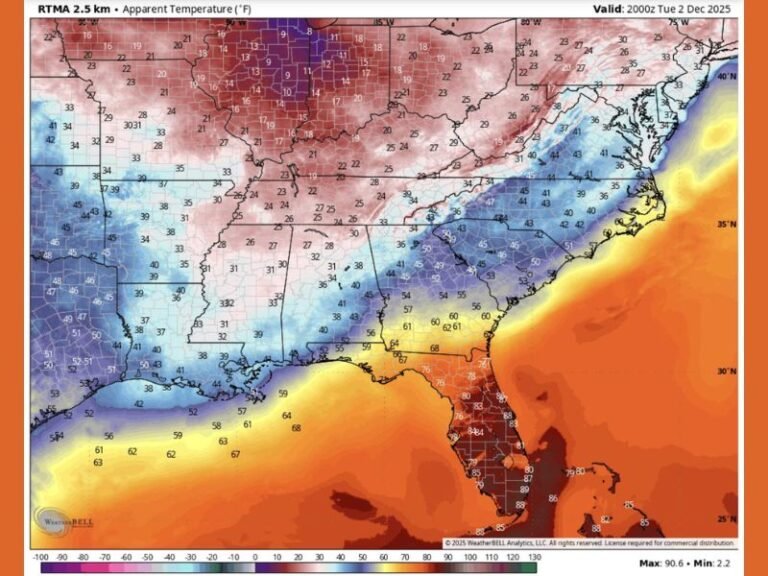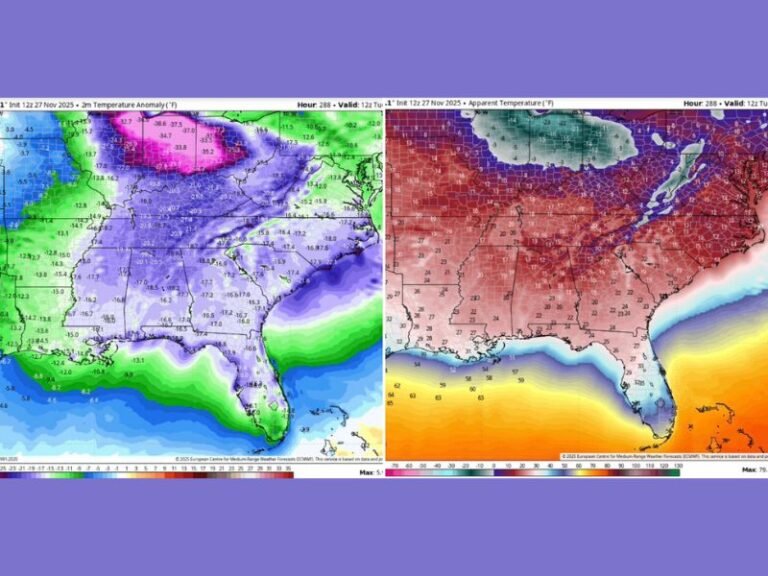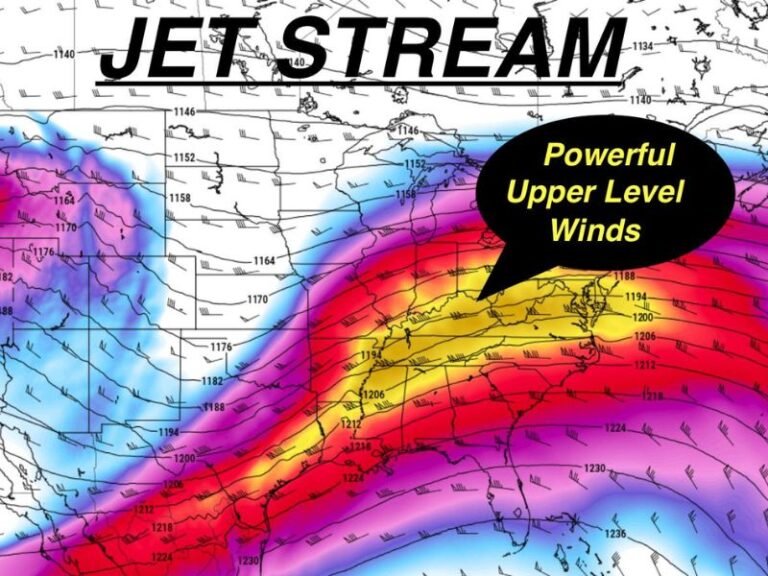Extreme Tennessee’s Temperatures as Compared to Other States
NASHVILLE, TN — With recent heat advisories blanketing Middle Tennessee, it’s easy to forget that just six months ago, the same region was under extreme cold warnings. From sweltering summer highs to frigid winter lows, Tennessee is no stranger to weather extremes — but how does it rank among other U.S. states?
Tennessee’s All-Time Temperature Range: A 145-Degree Swing
In January, Nashville recorded its coldest temperature of 2025 with a morning low of 8°F on January 22. Fast forward to summer, and the mercury has already reached 98°F, producing a 90-degree difference within the same calendar year.
Looking at historical data, Tennessee’s coldest recorded temperature is -32°F, while its hottest on record is 113°F. That gives the Volunteer State a 145-degree total swing in extreme temperatures.
For comparison, Nashville itself has a record low of -17°F and a record high of 109°F, for a city-level range of 125 degrees.
How Tennessee Compares to Other States
According to WKRN, nearby states show similar patterns:
- Kentucky: 151° range (-37° to 114°)
- Montana: 187° range, the widest in the nation (-70° to 117°)
- Hawaii: 88° range, the narrowest, thanks to consistent tropical climate (12° to 100°)
States with the most extreme ranges tend to be located in the northern plains and the Rockies, where dry, thin air makes rapid temperature swings more common. In contrast, coastal and island states, like Hawaii and Guam, experience much more moderate and stable temperatures due to the ocean’s influence.
What Makes a State’s Temperature So Extreme?
Meteorologists say that dry air and elevation are key factors in creating extreme highs and lows. Desert regions and mountainous states heat up and cool down faster than places with higher humidity.
For instance:
- Montana’s -70°F low is one of the coldest ever recorded in the U.S.
- Desert states may see highs over 110°F but dip below freezing in winter nights
- Oceanic regions, like Hawaii or Guam, rarely experience major shifts due to the stabilizing effect of surrounding waters
Full national data can be found through NOAA’s temperature records portal.
How does your state compare in the weather extremes? Have you experienced both freezing cold and scorching heat in the same year? Share your story with the Saluda Standard-Sentinel.







